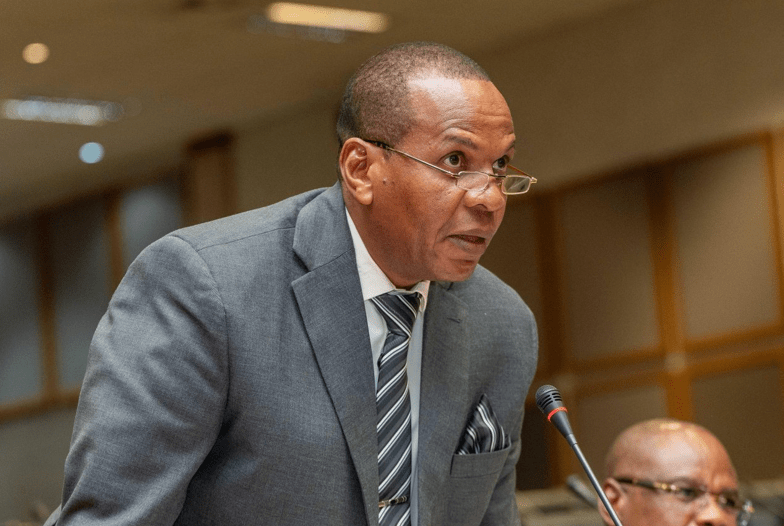Senate probes counties over emergency funds use
By Rawlings Otieno, April 1, 2025Senators have launched investigations into how counties have been using funds to mitigate disasters like floods, famine and drought.
This is even as the lawmakers insisted that the national government and the devolved units must account for every penny that has been donated to them by the donors and other international organizations to deal with floods.
Last year, the March-May floods led to 294 fatalities, displaced more than 55,000 households, killed 11,000 heads of livestock, and damaged 65,000 acres of cropland, with Nairobi County being the hardest hit, according to a Kenya Red Cross flood operations report.
Senator Danson Mungatana (Tana River) lifted the lid charging that the monies that are utilized to fund flood and other disaster mitigation activities are never investigated or reported.
“Many times, when we talk about floods, we talk about flood mitigation, then we go up to that point where people are requesting for support, and then we end the story at the point where people are saying thank you for the support. However, the monies that are utilized to fund flood and other disaster mitigation activities are never investigated or reported,” said Mungatana.
According to Mungatana a committee was formed in Tana River County to spearhead fundraising and has never reported how much money they raised; how much money was disbursed and who was involved in those contracts.
“The national government was also involved in the massive distribution of relief food and non-food items. These were never disclosed. The funds that were utilized were never disclosed,” charged Mungatana.
Mungatana further wants the committee to investigate, and call the relevant people involved and the organizations, in order to find out what monies were utilized.
“If this does not become the way to operate, then every time we have disasters like floods, we will have people who take advantage and floods will become a way to earn money and to make people rich, instead of dealing with the problems that are there.”
The Tana River lawmaker further alluded that other international bodies like the Kenya Red Cross Society (KRCS) and the World Food Programme (WFP) and others, came in to support but the finances and the monies that were put towards the flood mitigation measures and support were never disclosed.
Mungatana was contributing on the floor of the House after Tom Ojienda (Kisumu) had sought a statement from the Senate National Security, Defence and Foreign Relations Committee to dig deep into the flood response mitigation in Kisumu County, particularly in the areas affected by recent flooding in Nyando Constituency and vulnerable regions in County.
“In the statement, the committee should provide an update on actions taken by both national and county governments to address the impact of recent floods, including efforts to relocate and support displaced families,” said Ojienda.
Ojienda also wants the Prof Anyang’ Nyong’o-led Kisumu County Executive to explain the strategies for long-term flood mitigation and climate resilience in Nyando and other flood-prone areas of Kisumu County, including measures to prevent current displacement and food security.
“Describe the coordination mechanisms between the county and the national government, as well as humanitarian organizations to ensure efficient disaster response and relief distribution.”
In addition, Prof Ojienda wants the committee to investigate and provide information on the ongoing nutrition programme for flood-displaced victims, supported by the United National Children Education Fund (UNICEF) and the French Embassy, including details on the number of beneficiaries, specific interventions provided, and the expected duration of the programme.
He further wants an explanation of the measures being implemented to prevent malnutrition among children and pregnant women in affected flood areas, including access to food, healthcare and clean water.
While contributing to the statement on the floor of the House, Senator Kamau Githuku (Lamu) said that there have been instances where many people were displaced, their properties destroyed and there was no compensation.
“As we draw near to the rainy season, it is imperative that the Government implements measures to support and help the people of this country. We have seen in different instances that some people suffer during the rainy season. The Government is supposed to take care of them because they are taxpayers,” said Githuku.
He went on: “The national Government must help these vulnerable people in the event of such a disaster. The governors of the 47 counties should hide in the coats of the national Government. Sometimes, the governors leave the disasters to be dealt with by the national Government, whereas they have a kitty that is supposed to help the citizens if the disaster strikes.”
On her part, Tabitha Mutinda (nominated) charged that counties should provide the strategy management that they have, and put competent people who are qualified to deal with disaster management.
“We are in the rainy season and from the previous happenings, we have seen the damages that also come with the heavy rains, which end up causing high levels of floods. We will end up having high costs, because we are dealing with the crisis, instead of having a preventive measure at this moment,” said Mutinda.
She went on: “When it comes to rain, we have issues that range from our people not being able to have mobility because the roads have been completely damaged and flooded. We also have issues of waterborne diseases that arise and affect the young to the old.”
